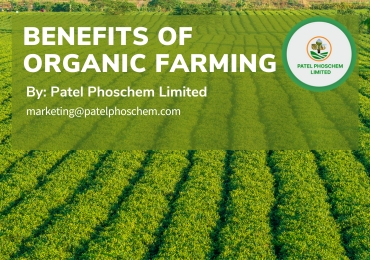
Organic farming is a simple and effective way to grow healthy food, and is essential for promoting a healthy lifestyle.
Organic farming enclose three crucial aspects: the historical development of organic farming, its current operational mechanisms, and its promising future. Examining its historical roots unveils the evolution and significance of organic practices over time. Presently, organic farming operates by utilizing natural methods. Methods such as crop rotation, composting, and biological pest control, avoiding synthetic chemicals and genetically modified organisms. Looking ahead, organic farming holds immense potential for addressing sustainability challenges, promoting biodiversity, and ensuring food security. By embracing organic farming, we can nurture a healthier present and a brighter future for generations to come.
Explore the organic farming
- Organic farming has emerged as a sustainable alternative to conventional farming methods, offering a wide range of benefits. Exploring the benefits of organic farming, discussing the use of organic fertilizers and crop yields can highlight the growing demand for organic produce and its potential market value. We can understand the significance of this agricultural practice.
- The use of organic fertilizers promotes sustainable agriculture. The potential market value of organic products provides farmers with promising economic prospects. SSP Fertilizer is most common fertilizer use in farming. As we move towards a more sustainable and health-conscious future, organic farming plays a crucial role. Organic farming ensures a secure and environmentally-friendly food production system.
What is organic farming?
Organic farming is a method of growing plants and raising them without using synthetic chemicals or genetically modified organisms. It focuses on working in harmony with nature and maintaining the health of the soil, plants, animals, and ecosystems.
Advantages
There are several advantages of organic farming. Firstly, it helps in producing nutritious and healthier food as it avoids the use of harmful pesticides, herbicides, and artificial fertilizers. This results in food that is free from chemical residues, making it safer for consumption.
Benefits
The benefits of organic farming are numerous. Organic farming methods promote soil fertility and improve its structure, leading to better water retention and nutrient availability for plants. This results in higher yields and better crop quality. Organic farming also helps in reducing pollution and greenhouse gas emissions, contributing to a healthier environment. Furthermore, organic farming supports local economies and communities by promoting small-scale farming and providing employment opportunities.
Importance
The importance of organic farming cannot be overstated. It plays a crucial role in sustainable agriculture and contributes to the long-term health and well-being of the planet. By adopting organic farming practices, we can protect biodiversity, conserve natural resources, and mitigate climate change. It is a way of farming that ensures the future generations will have access to healthy food and a balanced ecosystem. In India, organic farming has gained significant popularity in recent years. The country has a rich tradition of agriculture, and organic farming aligns well with its cultural and ecological values. Many farmers in India have adopted organic farming methods to reduce their dependence on chemical inputs and promote sustainable agricultural practices. The government has also taken initiatives to support and promote organic farming through various schemes and programs.
Organic farming methods
There are different Organic farming methods and techniques used in organic farming. Integrated organic farming is one such approach that combines organic farming practices with the use of natural pest control methods, crop rotation, and the integration of livestock. This method helps in maintaining the ecological balance and reducing pest and disease problems. Crop diversity is another important aspect of organic farming. By growing a variety of crops, farmers can reduce the risk of pests and diseases and enhance the overall resilience of the farming system. Crop rotation, which involves changing the type of crops grown in a specific area over time, is a common practice in organic farming to improve soil fertility and control pests.
Read this also: Types of Phosphatic Fertilizers
The objectives of organic farming are
- Promote ecological balance
- Conserve biodiversity
- Enhance soil fertility
Organic farmers aim to produce high-quality, chemical-free food while minimizing environmental impacts. They focus on nurturing the soil through the use of organic fertilizers, green manure, and compost, and rely on natural pest control methods and beneficial insects.
Types of organic farming
There are four main types of organic farming pure organic farming, where only organic methods and inputs are used; integrated organic farming, which combines organic and conventional farming practices; community-supported agriculture, where consumers directly support local organic farms; and biodynamic farming, which emphasizes holistic approaches to agriculture.
Components of organic farming include practices such as crop rotation, where different crops are grown in a sequence to maintain soil fertility, and the use of green manure, which involves growing specific plants and then incorporating them into the soil to add nutrients. These practices help in improving soil health and enhancing the productivity of organic farms.
Summary:
Organic farming is a sustainable and environmentally friendly approach to agriculture that promotes the production of healthy and safe food. It offers numerous benefits, including better soil fertility, reduced pollution, and the conservation of natural resources. Organic farming methods and techniques, such as integrated farming and crop rotation, play a vital role in achieving the objectives of organic farming. In India, organic farming has gained momentum, and it is crucial for the future of agriculture and the well-being of farmers.
Get more updates from us on Patel Phoschem Instagram


Good post. I learn something totally new and challenging on blogs I stumbleupon on a daily basis. Its always useful to read through articles from other authors and use a little something from their web sites.